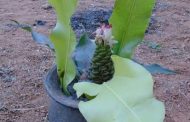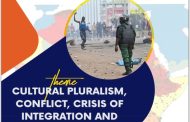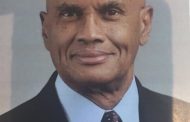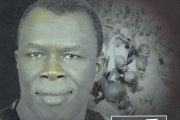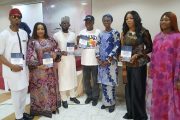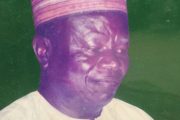The stakes are high, not only because two signifying individuals in democratic practice in Africa are involved but also because democracy itself is in a stalemate. Democracy has been mobilised into such a seductive but paradoxically unattainable concept. About a month ago or so, a survey turned up with an infographic to the effect that majority of Africans prefer democracy to any other model. The mischief in that survey is that it did not say anything about the type of democracy Africans have that preference for.
Well, in the week just ended, The Economist of London turned up with a story headlined “why Africans are losing faith in democracy”. It was so categorical. It stands as a refutation and even a challenge to the survey result since The Economist has since positioned itself as the holy text on liberal democracy. It offers nobody any apologies for that.
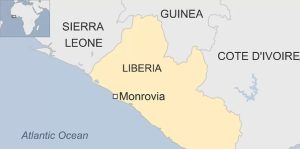 But it also does not spare liberal democracy either. Intervention recalls a long survey on democracy in 1997 to which the link is not readily available, the British weekly wrote what could as well be retitled ‘democracy is impossible’. Its argument is a simple one: democracy has to be representative which implies election but for four years, the rest of the citizenry are reduced to observers in their own funeral as only the elected do all the deciding. The Economist saw that as a major defect. It has written more ever since as anyone who follows the mild mannered weekly will testify.
But it also does not spare liberal democracy either. Intervention recalls a long survey on democracy in 1997 to which the link is not readily available, the British weekly wrote what could as well be retitled ‘democracy is impossible’. Its argument is a simple one: democracy has to be representative which implies election but for four years, the rest of the citizenry are reduced to observers in their own funeral as only the elected do all the deciding. The Economist saw that as a major defect. It has written more ever since as anyone who follows the mild mannered weekly will testify.
The Economist, of course, has a point. That point can be argued to be what Dr. Laura Montanaro of the University of Essex in the UK brought out more powerfully in her popular essay which later became a book, Who Elected Oxfam? Oxfam and many charities or global civil society organisations do a better job of democracy than the state, especially in Africa. Although they do not operate outside of the logic of the power calculus of their home states, the point is that they set goals that can sometimes run against the hegemonic scripts of their home governments because human agency is involved and those who run those charities are not zoombies.
So, the stalemate about what to do with democracy hangs on humanity, especially as everyone else, including The Economist say that there is no alternative. It is their shorthand rejection of Socialism. Socialism has a problem because it assumes the possibility of a clean start and the death of politics afterwards. That is the noble naivety that haunts it because there is no time or society where there will not be heterogeneity of views. Otherwise, Socialism has a more fantastic formula for inclusive sharing and social stability.
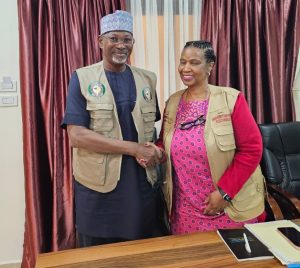
Jega and the Head of the AU EOM team, headed by Former Deputy-President of the Republic of South Africa and Member of the AU Panel of the Wise, H.E Dr. Pumzile Gloria Mlambo-Ngcuka
For now, however, democracy is the way. And which is the spectacle playing out in Liberia. As is typical across Africa, there is anxiety if the electoral component of the democratic black box will be free and fair. Intervention is not there in person in Liberia. But it is aware of a phalanx of anticipatory structures in place to forestall electoral creases along the line. Interestingly, two Nigerians are leading the processes, meaning once again the paradoxical mystique of Black Africa’s giant in terms of exporting what it doesn’t quite have (uncontroversial elections) and importing what it has in abundance (fuel, for example).
There is Dr Goodluck Jonathan, former president of Nigeria, is in Liberia under his West Africa Elders Forum (WAEF) initiative while Prof Attahiru Jega, former Chairman of the Independent National Electoral Commission of Nigeria (INEC) from 2010 to 2015, is lead the short-term ECOWAS Election Observation Mission (EOM) for the presidential, senatorial and parliamentary elections scheduled to be held on Tuesday October 10th, 2023. Dr. Jonathan is a signifier for democracy for reading history brilliantly in 2015 in a country where brilliant ready of history is scarce. Prof. Attahiru Jega is also a signifier because he is not only a student as well as teacher of democracy, he has run Africa’s most complex election management body with some innovations in technological fix.
Both have since arrived in Monrovia, the Liberian capital, on October 2nd, 2023, with Jega holding working sessions with different stakeholders, including the National Elections Commission (NEC), government, civil society organisations, the media, security agencies, as well as political parties and candidates, in order to ensure the smooth conduct of the electoral process.
The meetings are all parts of the role assigned to the West African EOM to monitor all pre-electoral, electoral and post-electoral phases of the election, to ensure that the electoral process complies with international best practice. The ECOWAS short-term observers are drawn from the ECOWAS Council of the Wise, the ECOWAS Parliament and the Community Court of Justice, Member States’ Ministries of Foreign Affairs, electoral management bodies and civil society organisations.
Other details available to Intervention shows that the West African Organisation has deployed a 95-member election observation mission, comprising 80 short-term observers and 17 long-term observers. All that are in accordance with the provisions of the Supplementary Protocol on Democracy and Good Governance relating to the observation of elections and ECOWAS assistance.
It is understood that about 2,471,617 voters out of Liberia’s population of 5.4 million are expected to elect the new President of Liberia, fifteen (15) Senators and seventy-three (73) members of the House of Representatives.




